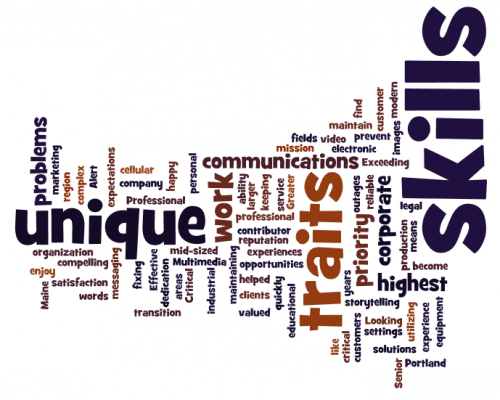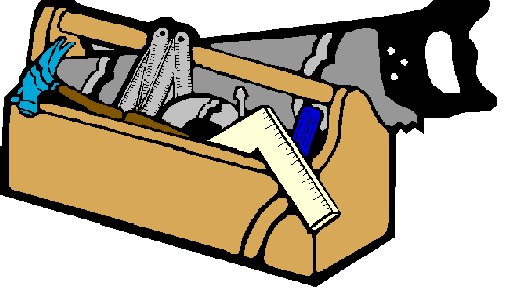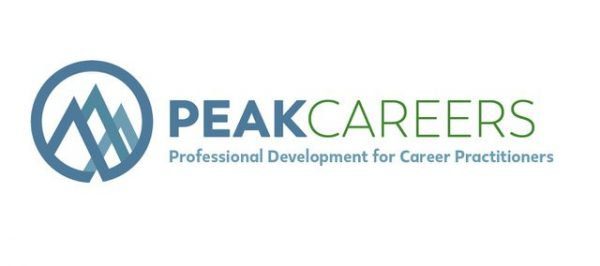
I believe the core of our work as career coaches / counselors is to help our clients articulate their skills.
This is an essential foundation for the career development process. I am working with a number of clients right now that struggle with defining what skills they bring to the workplace. Our work together is focused on really mining out what they do and what makes them unique. In other words, what value do you add to the workplace.
For example, after three meetings with this client, he was able to state this as his value-added statement.
I have the ability to find solutions for complex problems by utilizing my work experiences and skills. I enjoy the personal satisfaction of keeping the customers happy by fixing problems quickly and maintaining the equipment to prevent outages. In doing this I have helped Critical Alert maintain a professional reliable reputation with customer service being at the highest priority. I would like to work for a company where I can transition my skills to work in other electronic fields, communications, or cellular areas where that same dedication to critical messaging is at their highest priority.
Once we had this refined, we were able to develop his resume, cover letter, LinkedIn Profile, and prepare for an interview.
Let’s look the 4 steps I used to help my client define and articulate his skills.
1) I like to start off with a series of questions to see how well the client can articulate their skills and traits in the workplace. Some people need more “nudging” in each area to get them to think “skills” first. I may ask follow up questions around these to get them to describe what they do. By listening closely to what they say, what words they use, and how they describe it, I can usually pick up skill sets that they take for granted that “everyone can do that”.
- What makes you unique in the workplace? (think about what others at work might say about you)
- What are your top 3-5 skills / traits / talents at work? (very creative, can fix anything, always on time, etc..)
- What are you passionate about doing? Think about a time you were in “flow” at work and lost track of time. (problem solving, helping others, researching, etc…)
- What do you do well? (think about work, hobbies, school, and volunteer experience)
Note: If people are really struggling with this I will often have them do a skills card sort which gives them the words and lets them organize them various ways. I find this can be very powerful for them. See blog on Card Sorts
2) Tell me a story about an accomplishment that you are proud of. Or describe a time you were most happy in your career. Its often good to ask a couple questions worded a little differently in order to get them to think about a scenario. What I listen for here are what skills did they use and how passionate are they about describing it. Are there values being described? What actual words are they using?
I nudge them to answer this question in the SAR method (although I don’t tell them, I just guide them through questions).
S- Describe the SITUATION
A- What ACTION steps did they take?. i.e. what skills were used / what traits were highlighted
R – What RESULTS came about?
I find that by telling me a story or describing something they did, their true skills and traits often come out. I ask them what skills were involved and then help them uncover even more skills based upon their story.
3) The next step is to get the client to develop a value-added statement that describes their skills, traits, and interests in a way that clearly show “what value do they bring to the workplace”. This begins with a recap of the main skills and traits they have talked about and I usually have them bullet them out first. Then turn them into a paragraph or two that gives their own authentic “voice” to it.

Once they capture the essence of their skills and traits, you can add in “What type of company do you want to work for? Or what type of industry do you want to work in? Help them add anything that gives a clue to where they want to go.
Here is another example of a value-added statement from a client.
“A Senior Multimedia Professional with 10 years of experience in video production, marketing, and corporate communications. Exceeding expectations for clients in corporate, educational, industrial and legal settings is my mission. Effective, compelling and modern storytelling through words and images is the means. Looking for opportunities to become a valued contributor with a mid-sized or larger organization in the Greater Portland, Maine region.”
4) Once they have a clear value-added statement, this becomes the core of everything they do in the career development process of looking for work. We work together to create a resume that reflects and highlights it, often by working it into a Summary statement at the top of their resume and re-ordering bullets in their experience section.
On LinkedIn, we create an About section in their profile using it.
It is worked into the cover letter.
When they network with others, this is what they use to introduce themselves.
During the interview, they prepare stories for each skill they want to highlight.
How do you help clients articulate their skills
and their value-added to the workplace?
If you liked this blog, you may want to check out Searching For Skills and Your Career Security
Jim Peacock is the Principal at Peak-Careers Consulting and writes a weekly email for career practitioners. Peak-Careers offers discussion-based online seminars for career practitioners focused on meeting continuing education needs for CCSP, GCDF and BCC certified professionals as well as workshops for career practitioners and individual career coaching.
He is the author of A Field Guide for Career Practitioners: Helping Your Clients Create Their Next Move and the recipient of the 2020 Kenneth C. Hoyt Award from the National Career Development Association.
Sign up here to receive my TOP 10 TIPS WHEN WORKING WITH AN UNDECIDED PERSON. You will also receive the career practitioner’s weekly email on a variety of career topics, industry news, interesting events, and more.



Excellent article Jim!
Thank you Tina, glad you enjoyed it. Skills are so important to be able to articulate to future employers but people have such a difficult time doing that on their own.